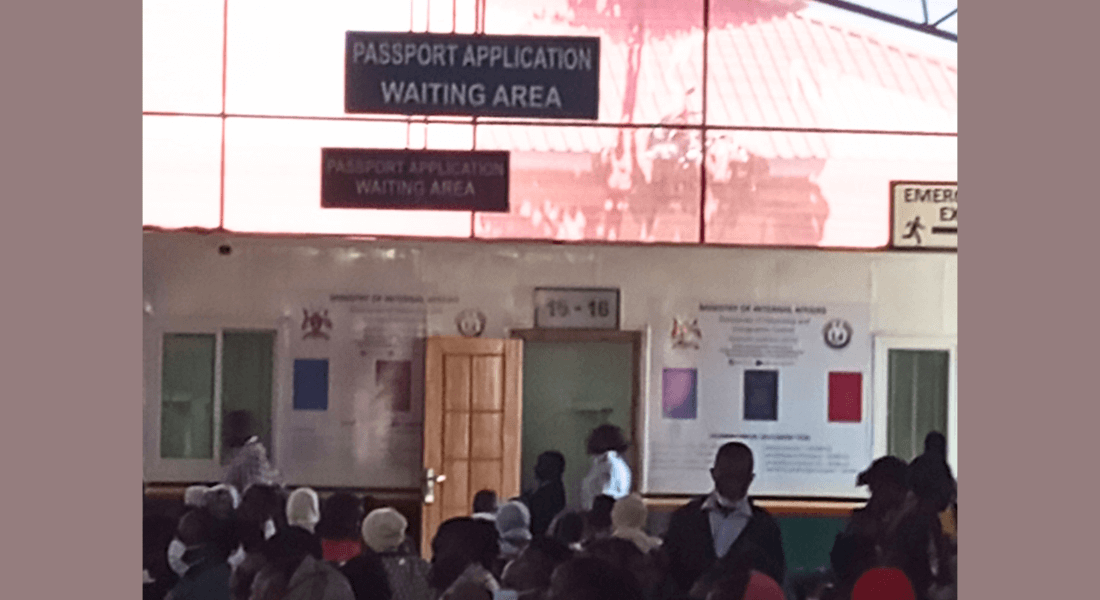Master Thesis Presentation: Mary Stella Byona
Mary Stella Byona, CERTIZENS member and recent master's graduate at the Department of Political Science, Makerere University, presents her thesis on 'ICT and E-Passport Management in Uganda Immigration Office: A Case Study of the Directorate of Citizenship and Immigration Control (2008-2023)'.

ICT and E-Passport Management in Uganda Immigration Office: A Case Study of the Directorate of Citizenship and Immigration Control (2008-2023)
What is your research question and where and how did you go about doing your research?
My thesis is concerned with the level of preparedness of the Uganda Immigration Office in the use of ICT and E-Passport Management. This follows a technological shift from the machine-readable passport to E-Passport in December 2018, impacting citizens’ accessibility and relationship to the new passport format. At the same time, this has coincided with the use of the national ID as a new requirement for the E-Passport in Uganda.
I conducted fieldwork at the Directorate of Citizenship and Immigration Control Headquarter and Passport Collection Centre Kyambogo, the NIRA (National Identification Registration Authority) Office in Kololo, the Local Council at Makerere University, and at Kisenyi and the Town urban centre. My methodological approach included semi-structured interviews, questionnaires and participant observation. Overall, I interviewed nineteen Immigration Officers, twenty-one citizens, five NIRA Officers and three local council one (LC1) officers.
What were your key findings and why do they matter?
My research found that the use of ICT enhances Uganda's E-Passport transition and promotes economic development through tax collection according to the field findings. However, those broadly positive effects are challenged by the realities of network limitations, computer illiteracy, and increased costs for citizens which make the process difficult and unaffordable for many people.
The E-Passport is vital for international travel, government revenue, and national planning. However, challenges like inadequate infrastructure to accommodate all staff and citizens in one place, transportation costs, delays, and illiteracy or inadequate ICT skills contribute to the increase of middlemen or ‘brokers’ who sometime mislead the citizens during the application process.
The study shows that most citizens, including educated ones, are unaware of the national ID as a requirement for an E-Passport, which is often only discovered when they are applying for the latter. Furthermore, the National IDis becoming increasingly important as a means of verification of identity for accessing other public services. This deepens the formalization of the relationship between identity (who you are) and identification (proving who you are) in Uganda.
The dependent variables in relation to identity include E-Passports, national IDs, visas, work permits, and Ugandan citizenship documents, which a citizen may be required to have for identification purposes in different times and places. But they are influenced by independent variables which refer to management, infrastructure, and policy under the Uganda Immigration Office and NIRA. NIRA and the Immigration Office are under one ministry, yet they work independently which sometimes affects citizens in terms of timing and location of the respective ID processes.. For example, an expired ID may not be renewed at NIRA in time for an E-Passport application. Overall, this calls for effective managerial and policy harmonization between the Immigration Office and NIRA in order to strengthen service delivery.
Why is your research relevant for the broader discussion on IDs and citizenship in Africa?
My research reveals important connections between the local, national and global levels of citizenship verification. While the E-Passport is a requirement to travel on the global level, in the case of Uganda this is connected to the possession of a national ID, which must be produced and verified in different local and national spaces. But as my work shows, one cannot take for granted that these interlinked systems are operating evenly or smoothly despite the apparently growing technological and managerial sophistication in the new digital era.
To access the full thesis, please contact the author via byonamstella@gmail.com.
